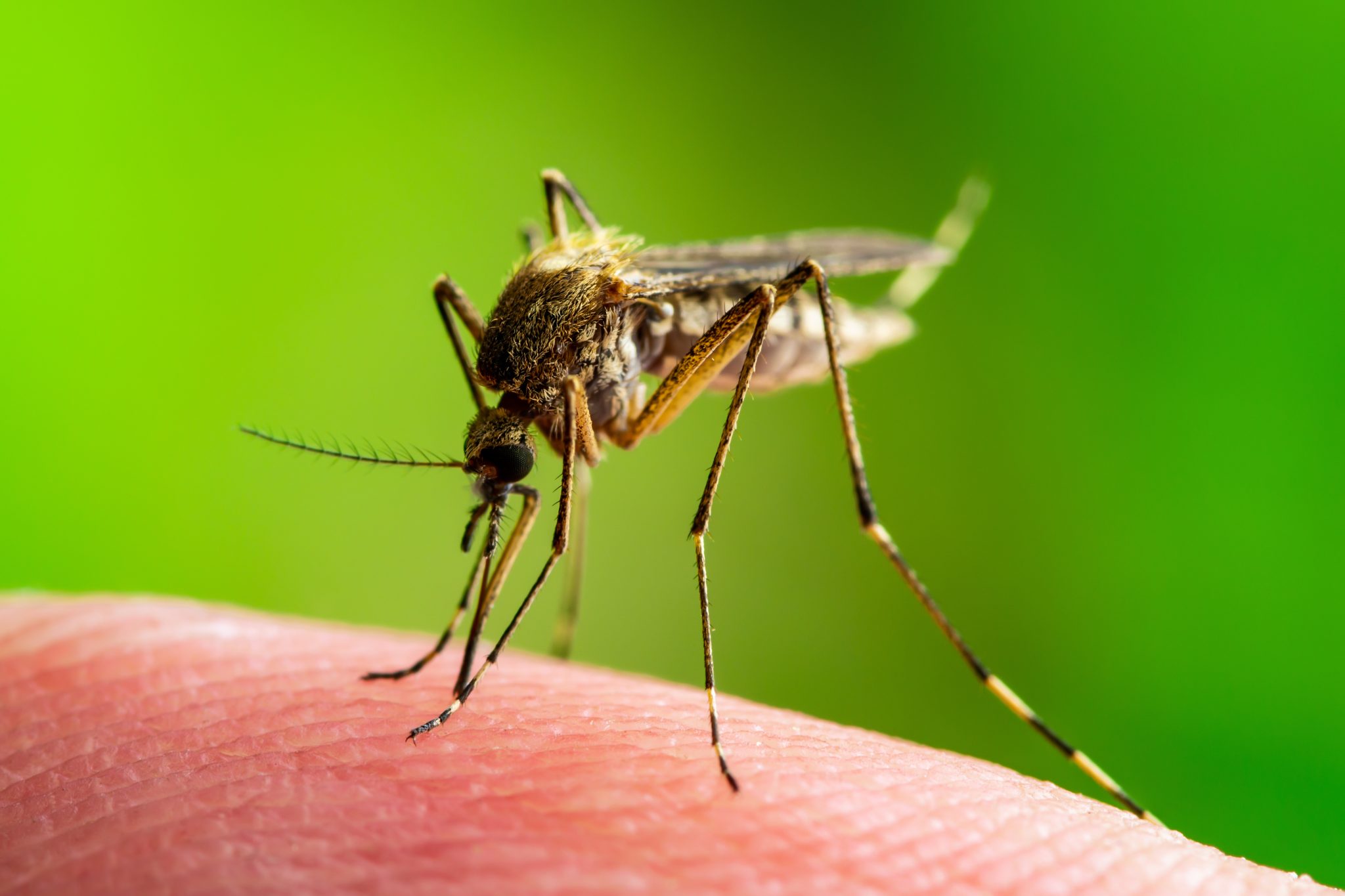Taking a Bite Out of Malaria: School of Medicine Works to Control Spread of the Disease Across the Globe
May 31, 2023 Joanne Morrison
Read more about UMSOM’s efforts to stop this life-threatening disease in the spring issue of “CATALYST” magazine.
In the United States, most of us look at mosquitoes and their bites as an itchy annoyance. But in other parts of the world, they can be much more deadly.
More than 240 million people worldwide are infected each year with malaria, according to World Health Organization (WHO) estimates. Researchers at the University of Maryland School of Medicine’s (UMSOM) Center for Vaccine Development and Global Health (CVD) have been leading the fight to stop the spread of the life-threatening illness, which is caused by parasites transmitted to people through the bites of infected female mosquitos.
Despite global declines in malaria morbidity and mortality over the last two decades, death rates have risen in recent years, and this disease remains a significant public health burden in sub-Saharan Africa, which carries a disproportionately high share of the global malaria burden. In 2021, this part of the world saw 95 percent of malaria cases and 96 percent of all malaria deaths, according to WHO estimates. Among those mortalities, children younger than 5 years old accounted for roughly 80 percent of all malaria deaths in the region.
While malaria is a serious illness impacting the most vulnerable populations including children and pregnant women, efforts to prevent and cure the disease have only been partially effective. Researchers at CVD have been applying the most sophisticated scientific approaches and novel discoveries to prevent and control malaria. In recent years, CVD researchers have made significant progress in measuring and controlling the spread of malaria, testing new treatments and developing vaccines — all key milestones toward ultimately reducing the global burden of this disease.
“Malaria continues to kill hundreds of thousands of children every year. The malaria research and policy communities have made so much progress, but we have now hit a plateau. We need innovative approaches, out-of-the-box thinking, and our best science to finally get rid of this disease. I am proud that our Malaria Research Program leads the way,” said Miriam Laufer, MD, a pediatric infectious disease specialist and director of CVD’s Malaria Research Program.
Read more about UMSOM's efforts to stop malaria at CATALYST magazine.
You can read the Spring 2023 issue of CATALYST magazine, which highlights the work of the University's women deans; the School of Nursing’s partnership with Enoch Pratt Library to offer health care; the Graduate School’s new MS in Diversity, Equity, and Inclusion Leadership; UMB’s sustainability efforts to install beehives; and much, much more!
.